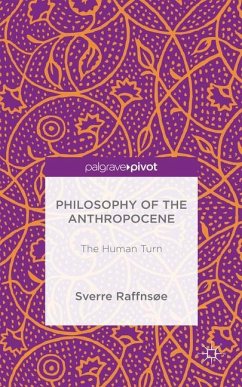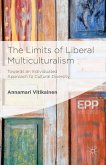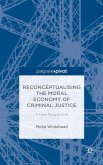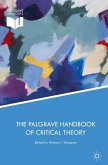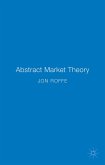The Anthropocene is heralded as a new epoch distinguishing itself from all foregoing eons in the history of the Earth. It is characterized by the overarching importance of the human species in a number of respects, but also by the recognition of human dependence and precariousness. A critical human turn affecting the human condition is still in the process of arriving in the wake of an initial Copernican Revolution and Kant's ensuing second Copernican Counter-revolution.
Within this landscape, issues concerning the human - its finitude, responsiveness, responsibility, maturity, auto-affection and relationship to itself - appear rephrased and re-accentuated as decisive probing questions. In this book Sverre Raffnsøe explores how the change has ramifications for the kinds of knowledge that can be acquired concerning human beings and for the human sciences as a study of human existential beings in the world.
Within this landscape, issues concerning the human - its finitude, responsiveness, responsibility, maturity, auto-affection and relationship to itself - appear rephrased and re-accentuated as decisive probing questions. In this book Sverre Raffnsøe explores how the change has ramifications for the kinds of knowledge that can be acquired concerning human beings and for the human sciences as a study of human existential beings in the world.
Review of The Human Turn: The Makings of a Contemporary Relational Topography
In preparing this review, I've read the author's proposal and the first 77 pages of his manuscript, as well as perused the remainder of the manuscript. On the basis of this reading, I can recommend publication of the project, with certain qualifications detailed below.
The manuscript is focused on exploring the ways in which human beings' relationships to global environmental processes, to history, and to themselves (via theory, practice, and policy), have changed in recent history, leading up to and into the moment that some geologists have dubbed the 'Anthropocene,' and offers suggestions (at both a theoretical and policy level) for how best to orient ourselves to these changes, some of which are ongoing. The manuscript supplies a variety of novel and instructive elements for its readers, including case studies, some terminological and conceptual innovations, and reviews of existing literature on selected topics of relevance. It also employs two very well chosen stylistic devices: (1) a series of excurses that provide extended discussion of select issues - for instance: a medieval murder trial in which a family of pigs were the defendants (12-14), the expression of an 'anthropocentric' human relationship to environments in the genre of landscape painting (39-45), and the origination of the humanities in the 18th century (88-94) - and (2) illustrations drawn from a variety of historical and contemporary sources, which add historical and sensory depth to the work, in addition to being interesting (and clearly carefully chosen) in their own right. I believe the manuscript has great potential as a textbook or monograph in the growing field of works about 'the human' and human beings' relationships to nature and to technology, a literature that blossoms at the border of philosophy and various empirical sciences. For all of these reasons, I recommend its eventual publication.
For all of its notable strengths, however, I have some hesitation about the manuscript in its current form. The problem is, I find myself unconvinced by a number of Raffnsøe's formulations. The author's ingenuity in collecting interesting cases and images is occasionally compromised by a seeming overconfidence about the strength of particular arguments and the lack of engagement with literature or evidence that would be useful for making the arguments in question. To give just one example (more could be given): the author writes that 'the growth of the human population has meant that a very significant part of the planet's dry biomass is now allocated to human bodies' (46), but he neglects to provide comparative figures for biomass allocation before and after the supposed 'human turn,' nor even a citation to an article or book chapter that could provide this information.
The most serious problem concerns the notion of a 'human turn' itself. I have no problem believing that the variety of issues discussed in the manuscript share a common theme (roughly, the radically altered character of the human place in the world in the course of modernity, as marked, for instance, by the notion of the Anthropocene, and how we ought to orient ourselves to these changes). What I doubt is that the notion of a 'human turn' is the best way to organize the variety of insights, cases, and subsidiary topics that the author has collected. For one thing, the author appears to be the only person who has ever discussed a so-called 'human turn.' Such terminological innovation would be legitimate if the author could make clear precisely what this turn is, and make the case that it is in fact taking place. But these obligations are only barely met. Regarding the first obligation, for instance, the author writes in the proposal that '[t]he title ... denotes a general turn towards the human, and the turning of the human in new directions' (1). But clearly these are two distinguishable developments: (i) an
In preparing this review, I've read the author's proposal and the first 77 pages of his manuscript, as well as perused the remainder of the manuscript. On the basis of this reading, I can recommend publication of the project, with certain qualifications detailed below.
The manuscript is focused on exploring the ways in which human beings' relationships to global environmental processes, to history, and to themselves (via theory, practice, and policy), have changed in recent history, leading up to and into the moment that some geologists have dubbed the 'Anthropocene,' and offers suggestions (at both a theoretical and policy level) for how best to orient ourselves to these changes, some of which are ongoing. The manuscript supplies a variety of novel and instructive elements for its readers, including case studies, some terminological and conceptual innovations, and reviews of existing literature on selected topics of relevance. It also employs two very well chosen stylistic devices: (1) a series of excurses that provide extended discussion of select issues - for instance: a medieval murder trial in which a family of pigs were the defendants (12-14), the expression of an 'anthropocentric' human relationship to environments in the genre of landscape painting (39-45), and the origination of the humanities in the 18th century (88-94) - and (2) illustrations drawn from a variety of historical and contemporary sources, which add historical and sensory depth to the work, in addition to being interesting (and clearly carefully chosen) in their own right. I believe the manuscript has great potential as a textbook or monograph in the growing field of works about 'the human' and human beings' relationships to nature and to technology, a literature that blossoms at the border of philosophy and various empirical sciences. For all of these reasons, I recommend its eventual publication.
For all of its notable strengths, however, I have some hesitation about the manuscript in its current form. The problem is, I find myself unconvinced by a number of Raffnsøe's formulations. The author's ingenuity in collecting interesting cases and images is occasionally compromised by a seeming overconfidence about the strength of particular arguments and the lack of engagement with literature or evidence that would be useful for making the arguments in question. To give just one example (more could be given): the author writes that 'the growth of the human population has meant that a very significant part of the planet's dry biomass is now allocated to human bodies' (46), but he neglects to provide comparative figures for biomass allocation before and after the supposed 'human turn,' nor even a citation to an article or book chapter that could provide this information.
The most serious problem concerns the notion of a 'human turn' itself. I have no problem believing that the variety of issues discussed in the manuscript share a common theme (roughly, the radically altered character of the human place in the world in the course of modernity, as marked, for instance, by the notion of the Anthropocene, and how we ought to orient ourselves to these changes). What I doubt is that the notion of a 'human turn' is the best way to organize the variety of insights, cases, and subsidiary topics that the author has collected. For one thing, the author appears to be the only person who has ever discussed a so-called 'human turn.' Such terminological innovation would be legitimate if the author could make clear precisely what this turn is, and make the case that it is in fact taking place. But these obligations are only barely met. Regarding the first obligation, for instance, the author writes in the proposal that '[t]he title ... denotes a general turn towards the human, and the turning of the human in new directions' (1). But clearly these are two distinguishable developments: (i) an

